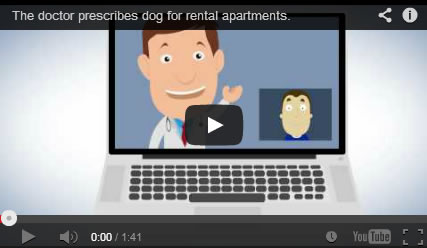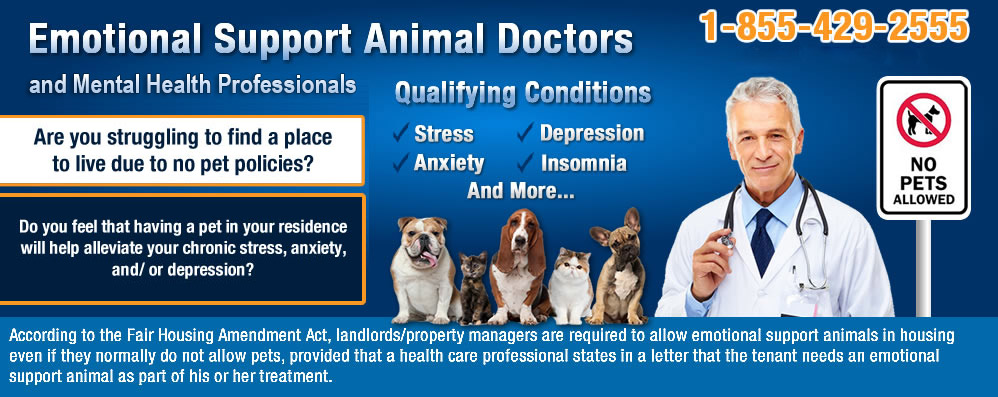Emotional Support Animals for Depression
Depression is more than just going through a tough time or feeling unhappy. Depression is a serious mental health condition that causes persistent feelings of despair and apathy.
Depression affects a person’s behavior, thoughts, feelings and ability to do normal daily activities such as working, sleeping and eating. People with depression can feel anxious, sad, helpless, hopeless, and that life isn’t worth living.
According to the ADAA, as a leading cause of disability in the U.S., in any given year, major depressive disorder affects 6-7% of Americans 18 years old and older. That’s about 16 million people.
ESA Benefits for Depression
Although the name emotional support animal describes the primary benefit, ESA’s can help with depression in a number of ways, including:
- Companionship – can help people deal with loneliness and low self-esteem
- Entertainment – can brighten a down mood with a playful personality
- Responsibility – can reinforce purpose
- Friendship – can lift spirits
- Refocus – can redirect attention from inner thoughts and problems
- Activity – can “force” physical activity with needs for walking, grooming, etc.
What’s the Difference Between an ESA and a Regular Pet?
Because an emotional support animal has been prescribed to you by a mental health professional, with a proper ESA letter you can exercise your rights to:
- ESA Housing Benefits: Have your ESA live with you in housing that does not allow pets (and the landlord/property owner is not allowed to charge you extra fees).
- ESA Travel Benefits: Have your ESA travel with you in the cabin of a commercial airplane (and the airlines is not allowed to charge you extra fees).
These rights are covered by the Fair Housing Act and the Air Carrier Access Act.
Emotional Support Dogs for Depression
Dogs are consistently the top choice as an ESA for people suffering with depression, offering:
- Friendship
- Unconditional love
- Non-judgemental companionship
- Noncompetitive play
- Loyalty
Dogs also give their owners:
- A sense of responsibility
- A feeling of safety and protection
- A reason to leave the house
- An entre for socializing
All these canine characteristics can offer a positive impact on the lives of people with depression.
Other ESAs for Depression
Although dogs and cats are the most popular emotional support animals for people with depression, any animal that makes you happier and helps you engage in living your life your best choice.
Whether it is a cat, dog, rabbit, or hamster, having the unconditional love and non-judgemental support of an ESA can be an incredibly important and positive way to help you deal with depression.
Dealing with Depression
If you think you could be suffering from depression, it is important that you speak with a mental health professional about your concerns. Untreated depression can make your situation worse.
If you believe an emotional support animal would help, discuss the idea with your doctor. If your doctor is not familiar with the proper execution of an acceptable ESA letter, we can help. The DOGtor can guide you through the process of getting your ESA letter just as we have for thousands of other Americans. We make the process simple, fast and affordable; plus we offer a same-day money back guarantee.













